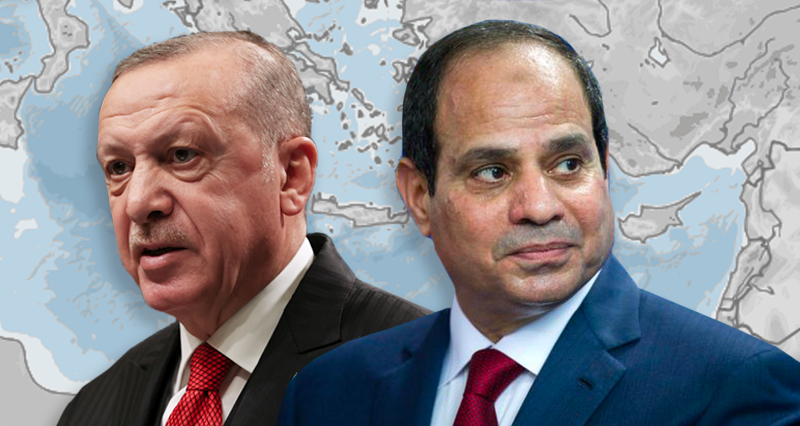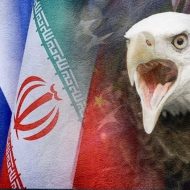By Nardine Ali / Cairo
In February, Egypt launched an international bid round for the exploration of oil and natural gas in 24 blocks. The Egyptian authorities determined the according exploration field in respect to Turkish claims of Exclusive Economic Zone in the Mediterranean.
This was interpreted in Ankara as a gesture and caused several declarations from the Foreign Minister, the Defense Minister and the Presidential Spokesperson, all declaring that an agreement on EEZ border limitations was possible. Additionally, Turkish government authorities indicated a normalization of relations between the two countries.
Following the Turkish declarations, eyes turned to Cairo.
The Egyptian administration kept silent toward the Turkish attempts, while the Egyptian media downplayed the impact of the statements on Egypt’s solid policy against what it called “Turkey’s interference in its domestic affairs.”
Egypt’s move is “not a concession to Turkey”
“Egypt’s avoidance of the Turkish continental shelf in the bidding is not a sign of weakness, it is stemmed from its respect to the international laws; that’s why this move cannot be interpreted as a ‘concession’ to Turkey’s manipulation or threats”, the political analyst and researcher of the international affairs, Ismail El Turk told United World International. El Turk said reconciliation with Turkey was impossible unless Ankara showed a strong sign of abandoning its expansive policies in the Middle East, especially in Libya. Additionally, Turkey had to stop immediately its support to the Muslim Brotherhood and its media outlets that “destabilize” Egypt’s national security, added El Turk.
When asked about the possibility of striking a deal between the two countries, El Turk said: “Everything is possible in the international relations.” However, he ruled out a near demarcation deal between Egypt and Turkey in the horizon, explaining that Egypt is committed to its agreement with Cyprus and Greece and cannot sell them out for a temporary ally.
Greece felt the threat of the Turkish gambit, sending its Foreign Minister immediately to Cairo, where he met his Egyptian counterpart, to discuss ways to advance areas of cooperation between the two countries. The sides also talked about a number of regional issues of mutual interest, according to the spokesperson of the Foreign Affairs Ministry, Ahmed Hafez, who was not available for a comment of the recent developments at the moment.
Turkish-Russian model for Turkish-Egyptian relations?
The Egyptian analytical website Daqaeq put scenarios for the potential approach between Egypt and Turkey, expecting a relation close to the Turkish-Russian model, as they reached an understanding on the mutual-interest causes without a full normalization. The website in this context cited Presidential Spokesperson İbrahim Kalın, said: “Egypt is an important country in the region, however, Turkey will not forget the overthrow of the Muslim Brotherhood regime, what happened during the dispersal of Rabaa and Nahda sit-ins, and the death of the former president Mohamed Morsi at the prison.” But Kalın also had drawn the comparison to Turkish-Russian relations as a pragmatic example of understanding despite disagreements.
Meanwhile, the Head of Eastern Mediterranean Forum for Political and Strategic Studies, Mohamed Hamed predicted that intelligence coordination between Cairo and Ankara was ongoing, possibly leading to a political understanding in Libya and maritime demarcation.
Egypt wants Ankara to assign ambassador to Cairo
“Egypt would only accept a normalization with Turkey in case Ankara agreed to assign an ambassador to Cairo, but it seems Turkey only wants a dialogue on the intelligence level,” Hamed told Albawaba News. The expert on Turkish affairs added that Egypt would consider its two allies, Cyprus and Greece, when it comes to any negotiations with Turkey. Hamed suggested that Ankara wants to loosen the international isolation imposed on it by what he called “a political courtship.”
Silencing Muslim Brotherhood elements in Turkey?
Regarding the Muslim Brotherhood elements, the Turkey-based expert of the Islamic movements, Khairy Omar said that Ankara is considering them as political dissidents, which cannot be extradited to Cairo or any other country. Instead of expelling these elements, Ankara might silence their criticism to the Egyptian regime instead, Omar said. This idea was supported by the Deputy Head of the Egyptian-Turkish House (Mısır-Türk Evi) Muhammed Şarkavi Türkoğlu, who claimed that the Muslim Brotherhood elements in Turkey have agreed not be an obstacle to Turkish-Egyptian reconciliation.









Leave a Reply